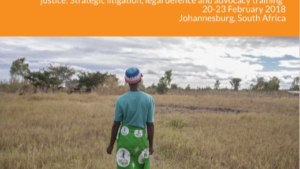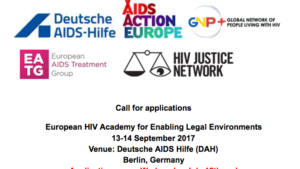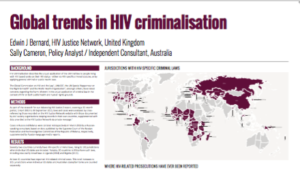Overview
Prosecutions for HIV ‘exposure’ and transmission in Germany are based on existing bodily harm laws following a Federal Supreme Court decision in 1988 that unprotected sex without disclosure was prosecutable under these laws.
Transmission has been prosecuted under section 224 of the Penal Code (‘bodily harm’), which covers acts damaging the health of another punishable with up to five years’ imprisonment, and section 225 (‘dangerous bodily harm’), which includes administering ‘poison or other substances which are harmful to health’, which can be punished with up to ten years’ imprisonment. Attempts are punishable under both provisions, and this has been used to prosecute ‘exposure’ without transmission. All cases of prosecution have involved non-disclosure along with the alleged ‘exposure’ and/or transmission, although criminalisation might be possible in the absence of non-disclosure.
People have been prosecuted in cases where alleged ‘exposure’ did not actually carry any risk of transmission. However a 2017 case is important in this context as the court acquitted a man who was charged with attempted bodily harm after having unprotected sex with two people without disclosing his status. The court heard evidence that the man was taking antiretroviral medication and had acquired undetectable status, meaning that transmission could not and did not occur. Similarly, in March 2020, a man was acquitted of attempted dangerous bodily harm arising from alleged HIV ‘exposure’ on the grounds that he was on effective treatment so HIV could not be transmitted. The complex case also involved charges of sexual abuse, based on the sexual relationship between the 57 year old teacher and his former student, aged 14 years, but he was also acquitted of these charges as the age of consent in Germany is 14, and the man had ceased teaching before the sexual relationship began. These cases suggest that prosecution should not occur where viral load is suppressed to undetectable levels.
People have generally not been prosecuted when condoms have been used. In that context, it’s important to note the 2018 case where a German court found a man guilty of a sexual assault offence for removing a condom midway through sex against his female partner’s explicit request (‘stealthing’). Although neither party was living with HIV, the case is important as it considers sex with a condom fundamentally different to sex without a condom for the purposes of consent.
An important ruling by the District Court in Aachen in 2016 appeared to signal a change to Germany’s approach to HIV criminalisation. The case involved a man who had condomless sex with his former female partner (numerous times) without disclosing his HIV-positive status. The woman is now also HIV-positive. The Aachen ruling found the case was more appropriately considered negligent injury, rather than intentional harm, acknowledging that the accused did not want to infect his partner. Until the Aachen case, courts had considered that HIV non-disclosure prior to sex without a condom meant the defendant “considered acceptable” that their partner would acquire HIV, and that intent could be ascribed to their actions. The Aachen ruling instead applied a principle of dolus eventualis, which is much closer to the common law definition of ‘recklessness’ than to malicious intent. However, subsequent cases have continued to be charged under bodily harm laws, suggesting that this approach has not been universally adopted.
A 2016 ruling from the District Court in Tiergarten is also important as the judge suggested that gay men in Berlin should bear some responsibility for their HIV acquisition if they don’t ask about their partner’s HIV status and then proceed to have condomless sex. In considering a charge of grievous bodily harm, the court found it must consider all factors in a case. This case involved two gay men who had sex without ever talking about HIV or having an HIV test. Experts presented evidence that in Berlin, one in every eight gay man is living with HIV. Both men were part of a group where HIV is prevalent, and everyone knows that one can become infected with HIV without a condom. The complainant also had a close friend living with HIV in his close circle of friends and was very familiar with the subject. The judge found that in a city like Berlin, a gay man starting a sexual relationship with another man, without asking questions or taking precautions, cannot claim their HIV infection was caused intentionally or negligently, and needs to consider their role as they must realise they are taking a risk.
According to AIDS Action Europe’s 2023 report, HIV Criminalisation in the EU, which cites data from the German organisation, Deutsche Aidshilfe, there were 54 court cases concerning HIV criminalisation from 1987 to 2016, 34 of which resulted in conviction. Sentences imposed have ranged from one to 10 years’. Around half of cases were against gay and bisexual men, with fewer against heterosexual men, and a small number against women.
The country’s highest profile case involved allegations against a female pop singer, Nadja Benaissa. In August 2010, she was found guilty and given a two-year suspended sentence plus 300 hours of community service following complaints from three men that she had unprotected sex with them without disclosing her HIV status. One of the men tested HIV-positive. Her very public arrest received international press coverage. Until the Benaissa case, only men had been prosecuted. In 2010, two further women were prosecuted in Hessen and Hamburg. One of these women, a female sex worker, was sentenced again in 2014 for ‘attempted aggravated assault’ (likely section 224), for what the court described as a pattern of having unprotected sex with clients without disclosing her status. The woman was imprisoned for four years, plus an additional five years of ‘preventative detention, despite there being no allegations of HIV transmission.
More recently in February 2024, the first reported case in several years, a man was charged with ‘dangerous bodily harm’ after allegedly withholding his HIV status from his ex-husband, who contracted HIV. The ex-husband alleged that they had sex without a condom at least 120 times and that his partner did not disclose his HIV status, however the accused disputes this account, and also suggests that his medication was left visible in his partner’s flat and that he attended a weekly cooking group for HIV-positive people.
Laws
Criminal Code
Section 223. Bodily harm
(1) Whoever physically assaults or damages the health of another person incurs a penalty of imprisonment for a term not exceeding five years or a fine.
(2) The attempt is punishable.
Section 224. Dangerous bodily harm
(1) Whoever causes bodily harm
1. by administering poison or other substances which are harmful to health,
2. using a weapon or other dangerous implement,
3. by means of a treacherous assault,
4. acting jointly with another party to the offence or
5. using methods which pose a danger to life
incurs a penalty of imprisonment for a term of between six months and 10 years, in less serious cases imprisonment for a term of between three months and five years.
Further resources
Collection of HIV criminalisation cases prior to 2010
Position paper on HIV criminalisation by Deutsche AIDS Hilfe, 2012
Acknowledgements
Our thanks to Australian law firm Hall & Willcox for their research assistance to confirm current relevant legislation.
HIV Justice Network's Positive Destinations
Visit the Germany page on Positive Destinations for information on regulations that restrict entry, stay, and residency based on HIV-positive status, as well as access to HIV treatment for non-nationals.









